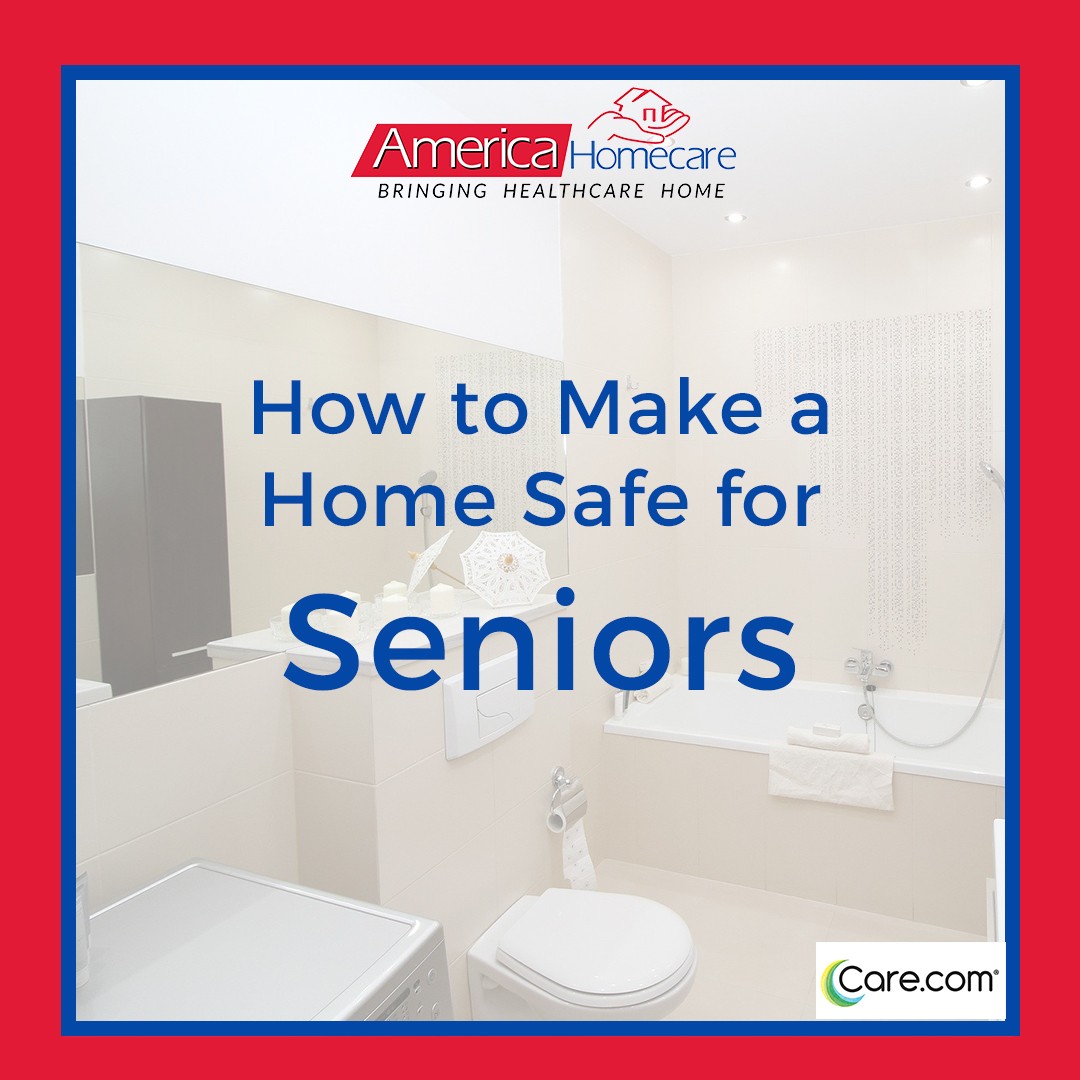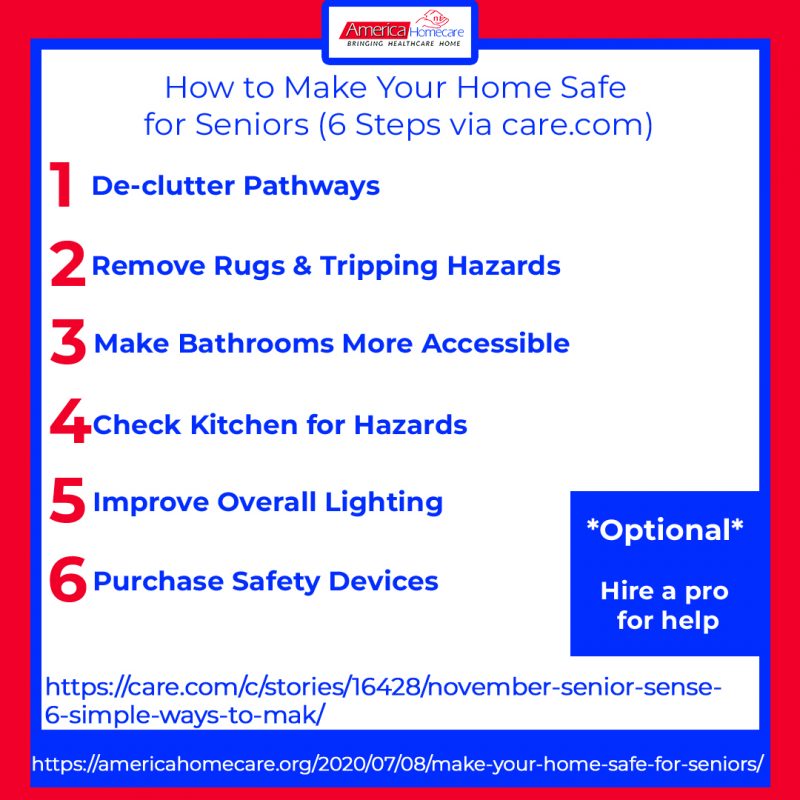How to Make Your Home Safe for Seniors

How to Make Your Home Safe for Seniors | America Homecare
As people get older, they face new challenges in their home physically and mentally. Eyesight weakens, movement gets harder, and memory lapses. The house that may be once familiar will become dangerous. This is why your home needs to be safe for seniors.
A good tip to keep in mind when making your home safe for seniors is to go through your house and think of what challenges they would face. “Imagine yourself with the physical or cognitive challenges of your loved one — poor vision, difficulty with stairs, use of a walker, memory lapses — and walk through the front door”, from Wendy Wells-Chanampa, a dementia care expert and founder of Senior Resource Consultants in Naples, FL.
1. De-clutter the Pathways
Simple everyday items can become dangerous hazards if your loved one trips on them while walking in the hallways. Getting rid of these piles is essential, but it can also be emotional, because many seniors feel attached to all the “stuff” in their home, says Mahlon Stewart.
Stewart is a geriatric clinical specialist and assistant professor of rehabilitation and regenerative medicine at Columbia University Irving Medical Center in NY. He also recommends getting outside help to declutter.
This clutter may include:
-
- Potted plants
- Piles of shoes and boots
- Laundry baskets
- Newspapers
2. Remove Rugs and Tripping Hazards
“When assessing a home, the number one concern is to prevent falls, which are the leading cause of fatal injury in Americans over 65,” says Amanda Lambert, a geriatric care manager in Salt Lake City, Utah, and co-author of Aging with Care: Your Guide to Hiring and Managing Caregivers at Home. Throw rugs and area rugs can bunch up or the corners can flip over, creating a true danger zone — be sure to tape or tack them down, or get rid of them altogether.
You should also check for:
- Any thresholds that need to be stepped over
- Footrests and ottomans that can get in the way
- Slippery stairs that need to be covered with non-skid treads
3. Make the Bathroom More Accessible
A bathroom can be the most dangerous room in the house. The shower should be accessed without stepping over a high side of a bathtub. There should also be sturdy grip bars for them to use the toilet and shower.
Do not attempt to install grip bars if you do not have the expertise. Hire a professional if needed.
4. Check Kitchen for Hazards
If your loved one will still be preparing his or her own meals (an aide who cooks or a food-delivery service are other options), make sure the kitchen is as safe as possible. Some adjustments may include:
- Moving frequently used pots, pans, utensils and groceries to lower shelves where they are easily accessible.
- Making sure faucets are clearly marked for hot and cold and installing anti-scald devices.
- Checking that burners and oven are working properly and have timers that beep loudly.
- Buying and upgrading to a new microwave, as microwaving is safer and easier than cooking with an open flame (and you can fill the freezer with prepared meals that just need to be zapped).
5. Improve Lighting
All pathways should be well-lit, especially the route to the bathroom at night, says Stewart.
In addition to all rooms, other areas to check for lighting include any outside areas such as the garage and driveway, near all doors as well as in the hallways and entryways. Inexpensive nightlights placed around the house can be a big help.
6. Purchase Safety Devices
Not only should the home have working smoke detectors and carbon monoxide detectors, but you should also assess whether your senior relative needs a personal fall detection device and a chair lift on the stairs, says Lambert.
It is fine to assess and modify the home yourself, but you can also hire a professional.
If you want to hire a professional such as an occupational therapist (OT) or physical therapist (PT) to help, you can contact your Area Agency on Aging for referrals and resources.
For larger changes that need to be made, consider hiring a Certified Aging in Place Specialist (CAPS) through the directory page of the National Association of Home Builders.
You can also consult your Senior Care Advisor for more safety tips and resources to help your loved one age in place.

Get care from someone you trust
Do you want to receive care from your
loved one while they are compensated
by Medicaid?
